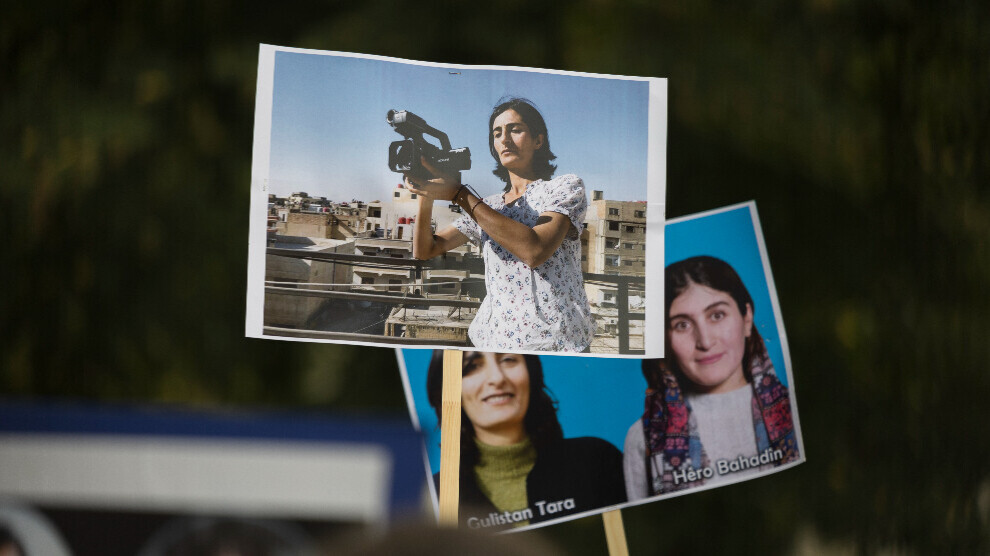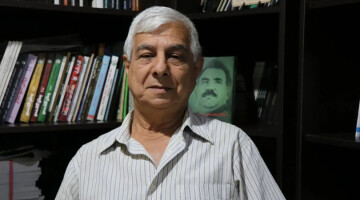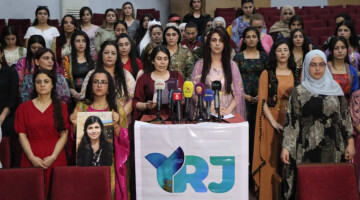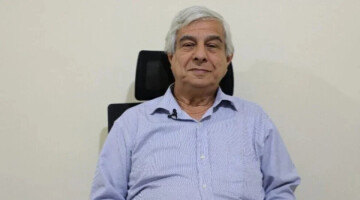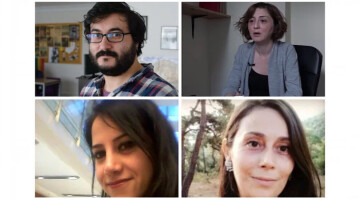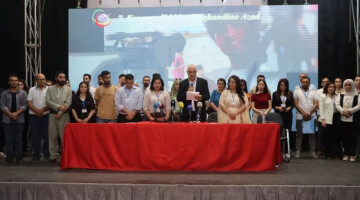An international delegation of journalists has traveled to the Kurdistan Region of Iraq (KRI) to find out more about the background to the murder of journalists Gulistan Tara and Hêro Bahadîn. Six media professionals from Europe, namely Alice Magar, Emma Audrey, Diler Akreyi, Hendrin Faraj Mohamed, Jallan Ziaei and Devrim Alp, arrived in the metropolis of Sulaymaniyah (Silêmanî) on Sunday at the invitation of the Association of Kurdish Women Journalists (ROJIN).
In the next three days, they plan to hold talks with various institutions, NGOs and relatives of the murdered journalists and collect information about the crime, which will then be passed on to human rights and press organizations. The visit is also about sending a determined signal of solidarity.
Kurdish journalists Gulistan Tara (40) and Hêro Bahadîn (27) were killed on 23 August in a targeted drone assassination by the Turkish state in the KRI. Six other media workers who, like their killed colleagues, worked for the free Kurdish press were injured, some seriously.
Although more than six weeks have passed since the attack, the Iraqi authorities have neither condemned the killing of the two women nor made a serious attempt to work towards identifying and punishing those responsible. ROJIN has since repeatedly called on the government in Baghdad to investigate the killing of Tara and Bahadîn as a war crime in order to "hold the aggressor Turkey accountable for its actions and to ensure the protection of journalists and press freedom" - but so far in vain.
Meeting with governor planned
Hêro Bahadîn came from Sulaymaniyah and worked as an editor for the production company CHATR. Gulistan Tara has worked as a journalist since 2000 and has been a political advisor for TV reports for CHATR Production for three years. The delegation from Europe is planning meetings with the company's board of directors, the survivors of the drone attack and media institutions based in the region.
A meeting with the governor of Sulaymaniyah, Heval Ebubekir, is also planned. The crime scene and the graves of the killed journalists are also to be visited. "The work of Gulistan Tara and Hêro Bahadîn was violently stopped. But when journalists are murdered, the last word must not be spoken. No one can stand idly by and watch the decline of human rights, freedom of the press, democracy and the rule of law," said a representative of ROJIN.

